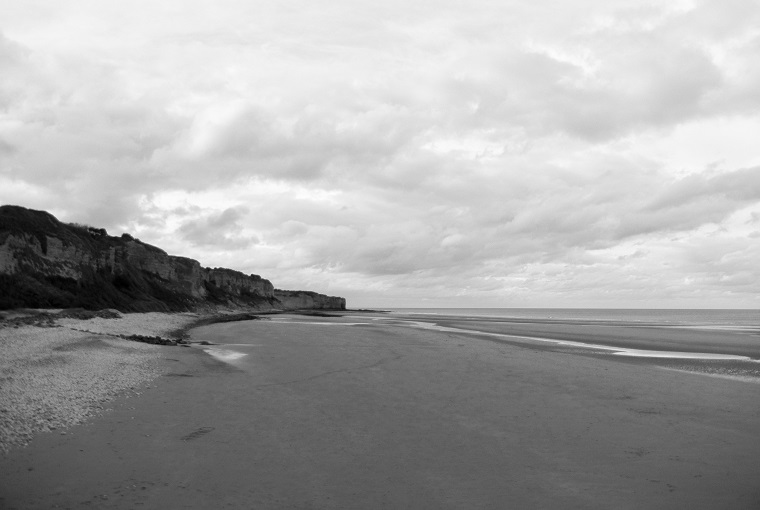2022 Maritime Advanced Warfighting School Staff Ride Exchange with French War College Complete

U.S. Naval War College Maritime Advanced Warfighting School (MAWS) faculty participated in the École de Guerre’s (French War College) World War II battle site survey of the Neptune and Overlord major military operations at Normandy, France, Sept. 5-9. The École de Guerre battle site survey took a holistic approach to the military actions at Gold, Sword, Juno and Omaha beaches with faculty experts at twelve specific battlefield sites.
“The four-day survey evaluated the obstacles and opposing forces that were encountered, and the survey developed enduring lessons from the major forcible beach entry operations,” said Rob Gardner, MAWS deputy director. “The goal of the operations was to project sustainable, decisive combat power onto the continent with the operational goal of establishing a footprint on mainland Europe that would subsequently lead to the strategic objective of the destruction of the armed forces of Nazi Germany.”
MAWS faculty met with leading French scholars and highly regarded historians to understand their perspectives of Operation Overlord, the codename for the Battle of Normandy, from planning, execution and exploitation perspectives to the final Allied victory in May 1945.
“MAWS has developed a professional exchange program with the École de Guerre,” said U.S. Navy Capt. Christopher Senenko, MAWS director. “These staff-ride exchanges provide opportunities for faculty to share historical understanding, educational techniques in operational planning, and warfighting perspectives. Staff rides provide a powerful instructional technique to help emerging operational leaders develop higher level critical thinking skills, creativity and decision-making capabilities.”
“Purposely planned and executed through rigorous preparation, staff rides combine the exploration of the actual physical environment with systemic analysis and careful consideration of all the factors, functions and forces as they existed at the time of execution,” said Don Thieme, MAWS associate professor. “In short, staff rides and campaign studies convert footnotes and satellite images to a contextual understanding of the actions and decision-making processes of the commanders and their staffs with the knowledge, perceptions and biases as they were at the time. This context creates a powerful understanding for both faculty and students to better respond to future conflicts.”
In additional to the September visit to Normandy, visiting professors from the École de Guerre and Sorbonne in Paris participated in the 2022 MAWS 1777 British Northern Campaign staff ride in upstate New York, Oct. 24-28. NWC faculty leveraged their developing relationship with the École de Guerre and gained important strategic and operational insights from their French counterparts on the importance of the Saratoga campaign. Considering ten battlefield sites, MAWS and École de Guerre faculty discussed conflict termination, theories of victory, information operations, allies and partners, and the most effective manners of educating emerging strategic leaders to think widely and deeply about operational art.
“Following your staff ride was a real pleasure, and I was able to measure the great quality of its preparation and its remarkable conduct,” said French Col. Stephane Faudais.
“Future exchanges with the École de Guerre will include French personnel participating in the MAWS World War II Mediterranean Campaign staff ride and subsequent Saratoga staff ride,” said Senenko. “Additionally, MAWS personnel will also participate in future École de Guerre Normandy battle-site surveys. These will expand the strategic military skills of faculty and students at both institutions, producing planners and commanders with a greater shared appreciation of operational art that translates into greater operational effectiveness for both nations’ armed forces.”
